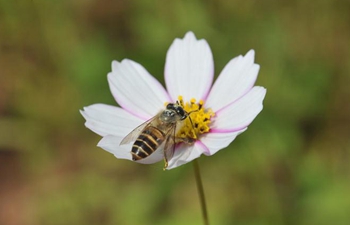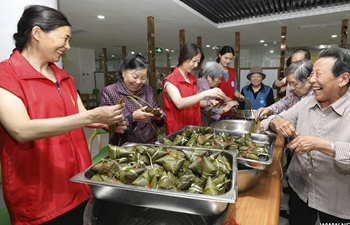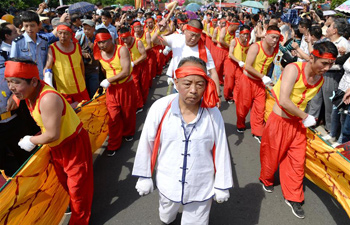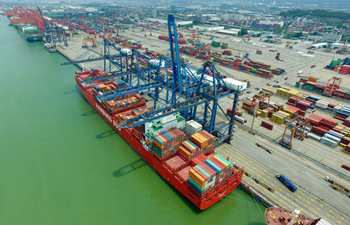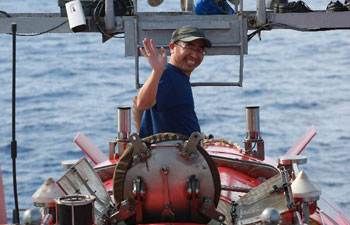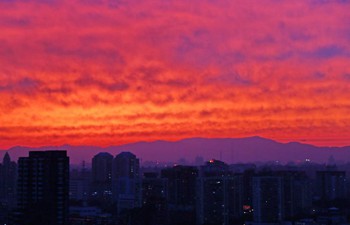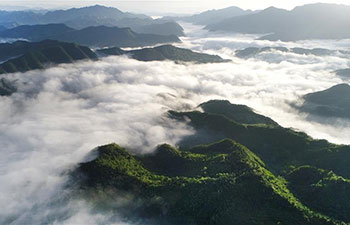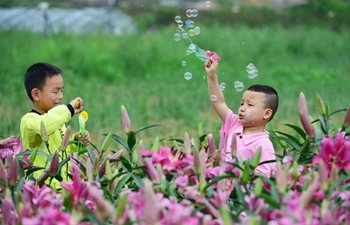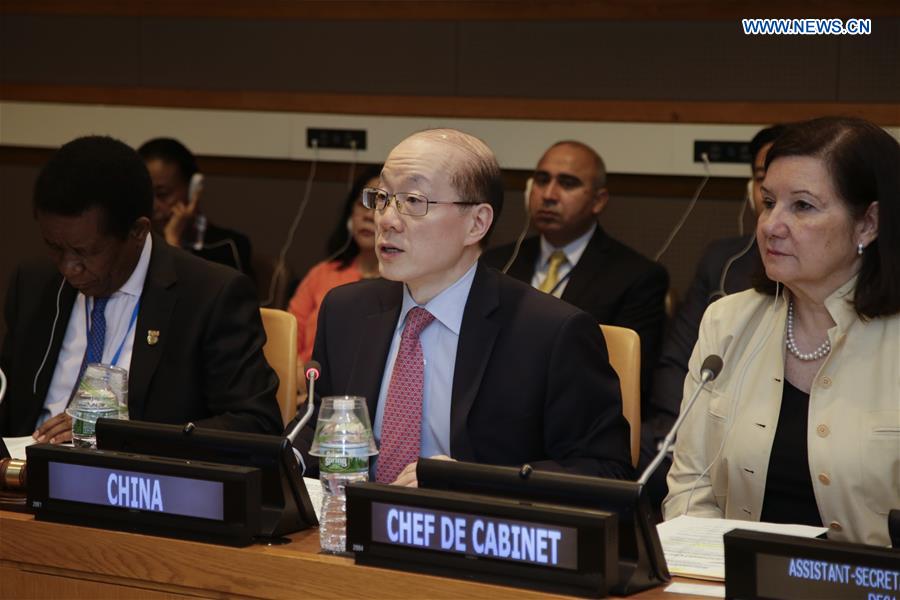
Liu Jieyi (C, front), China's permanent representative to the United Nations, addresses a workshop at the UN headquarters, May 26, 2017. A project promoted by China-UN Peace and Development Trust Fund was launched on Friday at the UN headquarters in a bid to help developing countries reduce hunger and explore renewable energy. The project named Juncao Technology provides with an agricultural technology to cultivate edible and medicinal fungi by using wild grasses and herbal plants instead of trees or woods. (Xinhua)
UNITED NATIONS, May 26 (Xinhua) -- A project promoted by China-UN Peace and Development Trust Fund was launched on Friday at the UN headquarters in a bid to help developing countries reduce hunger and explore renewable energy.
The project named Juncao Technology provides with an agricultural technology to cultivate edible and medicinal fungi by using wild grasses and herbal plants instead of trees or woods.
At a workshop held here, China's Ambassador to the UN Liu Jieyi said Juncao Technology is a priority project that the China-UN Fund is promoting, because it fits the needs of countries in Asia and Africa to eradicate poverty and it is a solution contributed by China to help them overcome development challenges.
The Juncao technology is developed based on research conducted by Professor Lin Zhanxi from China's Fujian Agriculture and Forestry University who invented the Juncao technology in the 1980s.
According to his research, the Juncao grass can develop its root system in deserts and grow fast and therefore it has been used to control soil erosion, desertification or manage saline-alkali soil.
It is also used to produce clean energy. Lin said the power generated from the burning of Juncao grown on one hectare of land is equivalent to that from more than 50 tons of coal but with much less emissions.
Statistics show that in China's northwestern region of Ningxia which is dry and desert-like, the project has helped lift 17,500 households out of poverty with farmers' annual income increasing from 80 U.S. dollars in 1998 to 1,024 dollars in 2007.
Maria Luiza Ribeiro Viotti, Chef de Cabinet to the UN Secretary General, said Juncao Technology has been brought to countries like Fiji and South Africa, helping them improve nutrition as well as food security, increase income for farmers and create social, environmental benefits.
"This means that this technology could play a very important part in helping us achieve the Sustainable Development Goals," she said.
Jerry Matthews Matjia, ambassador of South Africa to the UN, said that Juncao is an innovative technology which helps his country fight desertification, develop bio-fuels and improve health conditions.
He said the Juncao project is a good example of South-South cooperation and can play a bigger role in promoting sustainable agriculture in developing countries.
Luke Daunivalu, deputy ambassador of Fiji to the United Nations, said Juncao technology has created economic and social benefits in Fiji in a very short time and he hopes this project can benefit more countries and people around the world.





